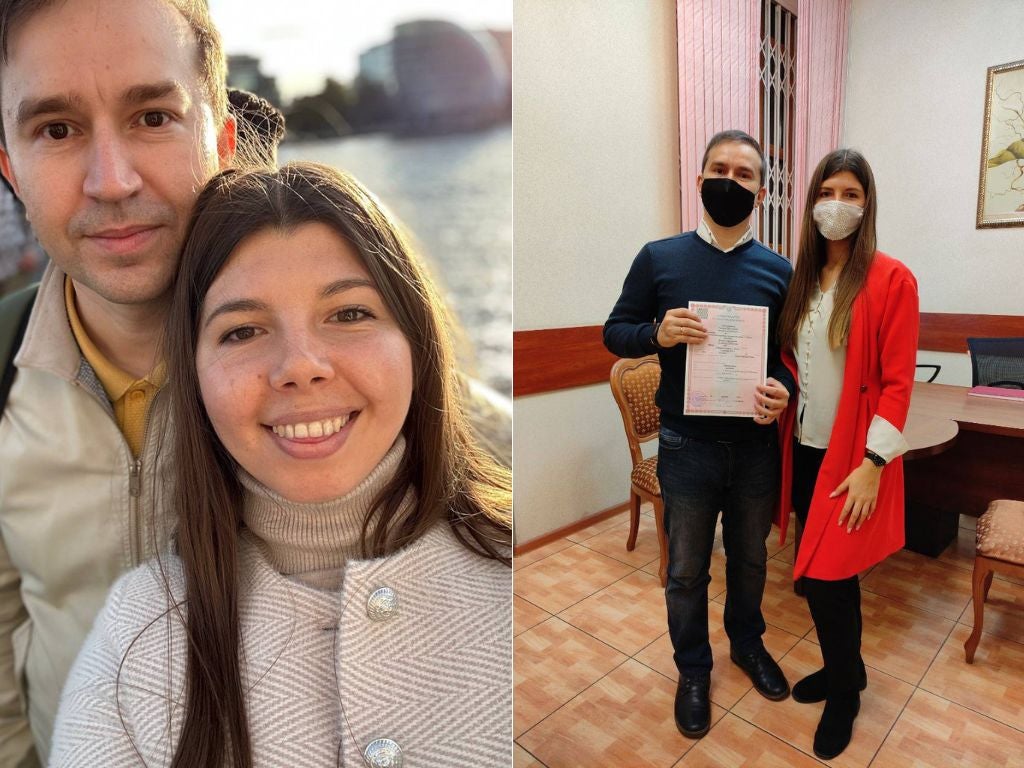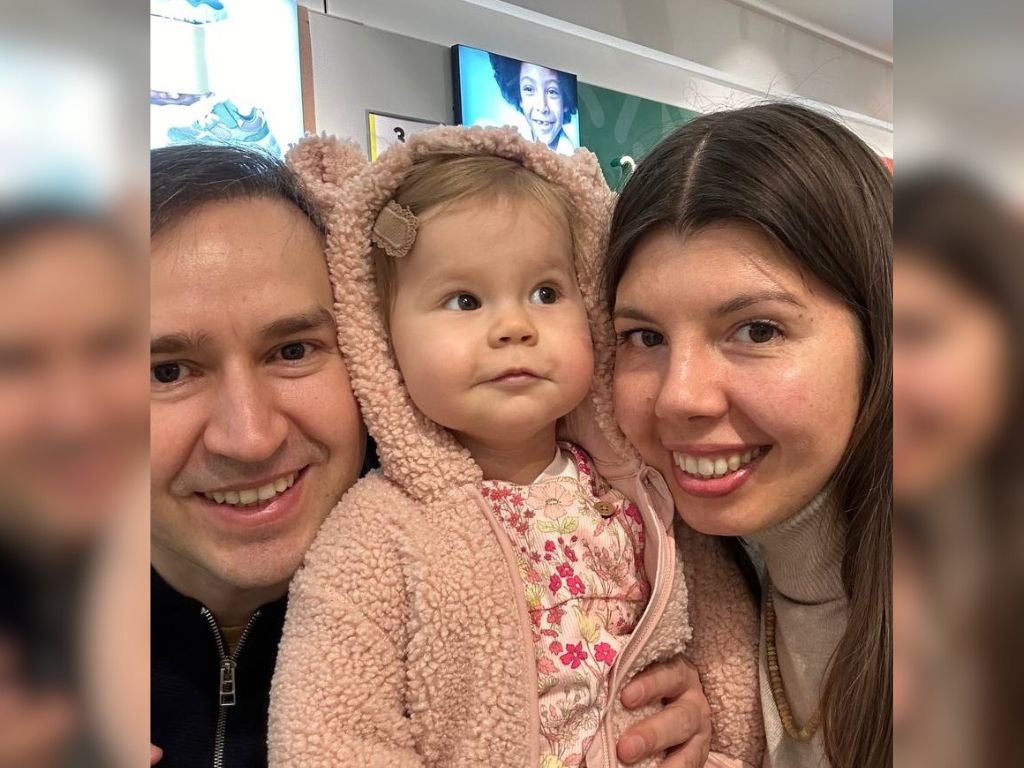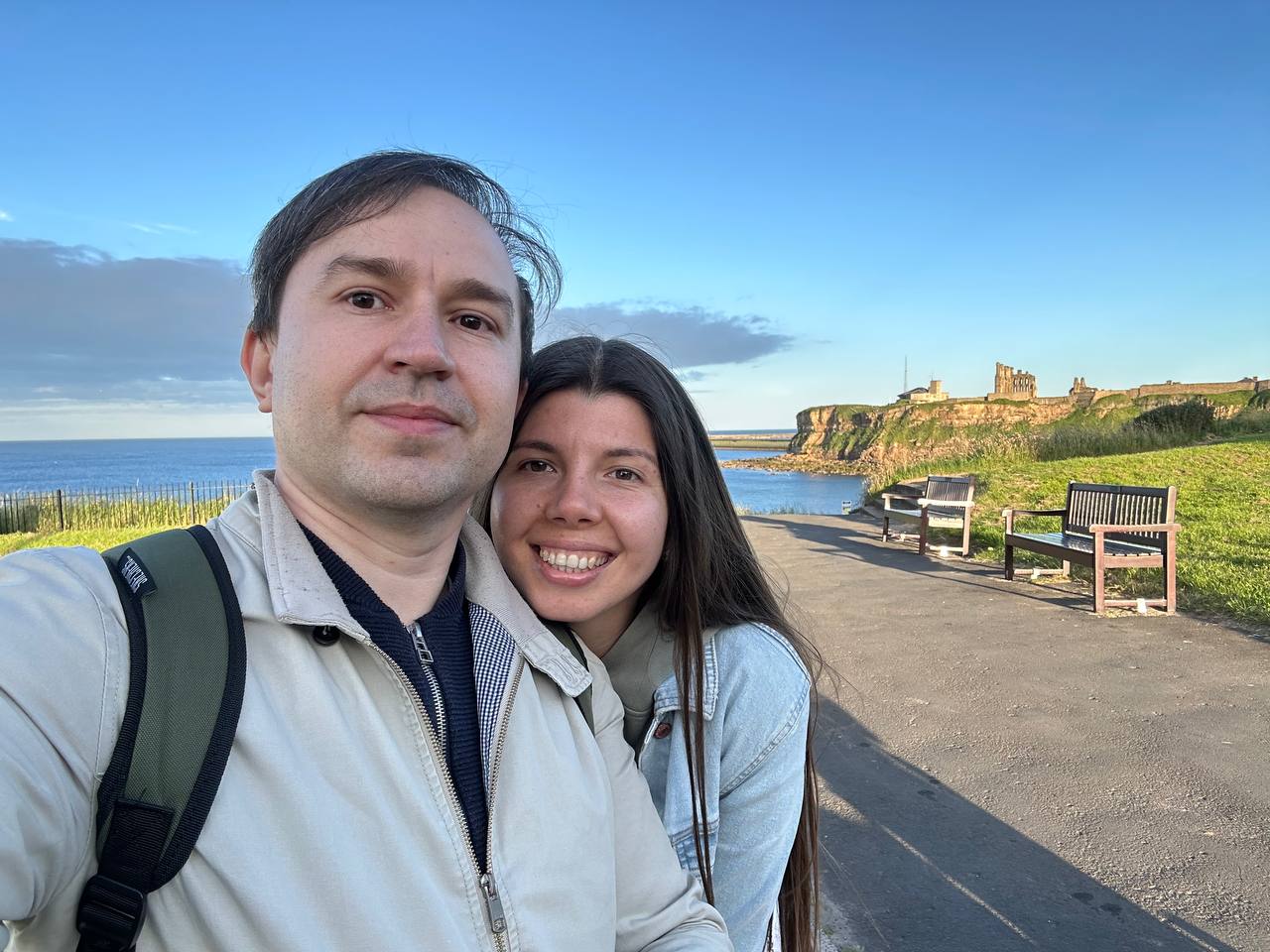Professor who fled Putin’s war warns Kremlin is playing ‘Russian roulette with lives’
Nearly 400 scholars have fled Russia, Belarus and Ukraine since the start of the war. One of them narrates his ordeal to Arpan Rai
Your support helps us to tell the story
From reproductive rights to climate change to Big Tech, The Independent is on the ground when the story is developing. Whether it's investigating the financials of Elon Musk's pro-Trump PAC or producing our latest documentary, 'The A Word', which shines a light on the American women fighting for reproductive rights, we know how important it is to parse out the facts from the messaging.
At such a critical moment in US history, we need reporters on the ground. Your donation allows us to keep sending journalists to speak to both sides of the story.
The Independent is trusted by Americans across the entire political spectrum. And unlike many other quality news outlets, we choose not to lock Americans out of our reporting and analysis with paywalls. We believe quality journalism should be available to everyone, paid for by those who can afford it.
Your support makes all the difference.Since Russia invaded Ukraine in early 2022, Vladimir Putin has faced persistent opposition not only in Western capitals but also inside his own country. For Russians though, criticising the president comes at a cost – one Salavat Abylkalikov knows all too well.
Abylkalikov, 38, a former professor at one of Russia’s most prestigious universities, says he was compelled to flee Moscow last year to escape being conscripted to fight in the Ukraine war, and protect his wife and daughter from harm and separation.
The war, which started nearly three years ago, has resulted in the deaths of hundreds of thousands of Ukrainians and Russians and made an estimated six million people refugees.
Russia has suffered the biggest brain drain since the collapse of the Soviet Union in the early 1990s, says Abylkalikov, who now lives in exile in the UK.
Abylkalikov is one of 400 academics from Russia, Belarus and Ukraine who, since the start of the war, have fled or sought help to leave from the Council for At-Risk Academics (Cara), a British charity that assists foreign scholars looking to escape dangerous places or situations.
Nearly 300 of the academics are from Ukraine – the highest number of requests for support from scholars in a European country since the 1930s.

Speaking to The Independent from his new home in England, Abylkalikov recalls escaping the clutches of police trying to round up men for conscription.
“When mobilisation started in Russia, I was actively teaching. But every day when I went to the university, I was afraid that they would catch me. There were no rules of exception for the science and academic community. So in the centre of Moscow, as I was approaching a metro station, I could see police waiting to catch hold of men like me,” he tells The Independent.
“For a scholar opposing the war,” the professor recalls, “I faced serious risks, including potential criminal prosecution, dismissal from work, and possible attempts at forced conscription into the war against Ukraine.”
He says he became increasingly uncomfortable with the “atmosphere” at his university, where some people openly backed the war. At home, his wife grew more stressed by the day.
After four years of marriage, Abylkalikov and his wife were expecting their first child in December 2022, just after Putin mobilised military reservists, widening the pool of men eligible to fight in the war.
“In Russia, there have been documented cases of children being separated from parents because of their anti-war and opposition activities,” Abylkalikov says, adding that he didn’t want such a fate to befall his family.

For he and his wife, he says, life in Moscow became hell. As he continued telling students that war was not good for Russia – many, he says, understood this — the university appointed a Putin loyalist named Sergey Karaganov as the dean of his department. Karaganov openly backed the war and argued that Moscow could attack a Nato nation.
Just before he left Moscow in the summer of 2023, a student at the university became a casualty of war, a life cut short by Putin’s so-called “special military operation”.
“Taras Konstantinovich Alekseev died heroically while performing his military duty,” a university obituary read. “He was 20 years old.”
The war now at his doorstep, the professor asked Cara for help and the charity helped get him to the UK.

Abylkalikov, who is now a visiting researcher in humanities and geography and environmental sciences at Northumbria University, says the Kremlin is playing Russian roulette with the lives of young men.
“Russian volunteers heading to war are offered substantial one-time payments, ranging from 20,000 to 30,000 rubles, as well as monthly salaries of about 2,500 rubles. In the case of disability, they are compensated with 40,000 rubles. In the event of death, the payment to their families is reportedly around 70,000 rubles,” he says.
The payments aren’t uniform and depend on where the recruit comes from. The majority of the mobilised men reportedly come from small villages, industrial towns, and poor republics. Signing up for military service earns them thousands of rubles as opposed to the 300-400 rubles their jobs offer, he explains.
“The gamble, however, comes with the risk of death. Yet, they are often willing to take this ‘Russian roulette’ gamble, and in many cases, their families are willing to support this decision,” he tells The Independent.
Research earlier this year by The Bell, an independent Russian website, found that 650,000 Russians had fled the country since the Ukraine war began. While some of them have since returned, Abylkalikov says academics like him are not going back any time soon.
As the war grinds on with no end in sight, Cara is urging the international community to save the scholars affected by the deadliest conflict in Europe since the Second World War.
“The need for international support to protect the world’s greatest minds has never been more pressing,” Cara’s executive director, Stephen Wordsworth, says, calling for support to provide safe haven to scholars under siege.



Join our commenting forum
Join thought-provoking conversations, follow other Independent readers and see their replies
0Comments